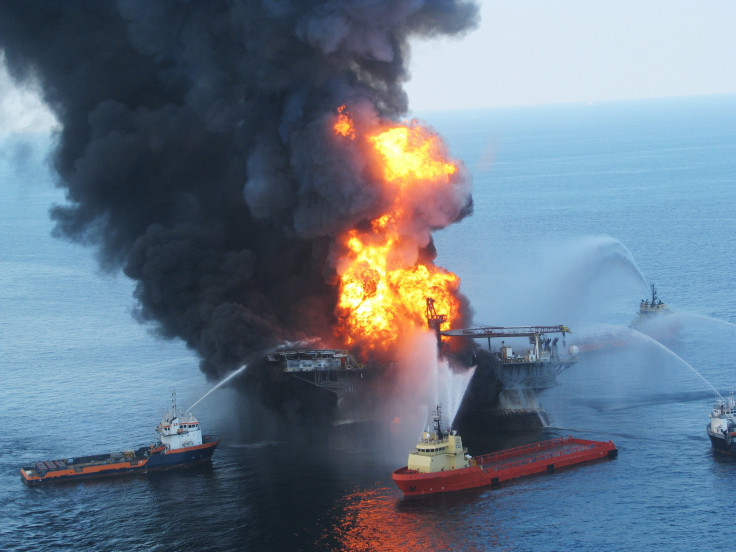BP's Deepwater Horizon Spill Caused By Gross Negligence, Judge Says, Opening Company Up To Billions Of Dollars Of Claims

A U.S. federal judge on Thursday ruled that British energy company BP PLC (NYSE:BP) (LON:BL) acted with gross negligence that resulted in 2010's Gulf of Mexico disaster that killed 11 people and poured millions of gallons of crude into the water over three months. The ruling may force the oil giant to pay billions of dollars of claims against it, according to Bloomberg News.
The judge, Carl Barbier, conducted the trial without a jury. The case also included Transocean Ltd. (NYSE:RIG) and Halliburton Co. (NYSE:HAL), and they too were found negligent.
“BP’s conduct was reckless. Transocean’s conduct was negligent. Halliburton’s conduct was negligent,” the judge wrote in a decision released by his New Orleans chambers.
BP responded to the judge's ruling in statement released Thursday, saying,
BP strongly disagrees with the decision issued today by the United States District Court for the Eastern District of Louisiana and will immediately appeal to the United States Court of Appeals for the Fifth Circuit.
BP believes that the finding that it was grossly negligent with respect to the accident and that its activities at the Macondo well amounted to willful misconduct is not supported by the evidence at trial. The law is clear that proving gross negligence is a very high bar that was not met in this case. BP believes that an impartial view of the record does not support the erroneous conclusion reached by the District Court.
BP is reviewing the decision and will issue a further statement as soon as possible.
According to Bloomberg,
BP, which may face fines of as much as $18 billion, has set aside $3.5 billion to cover those penalties. The company had taken a $43 billion charge to cover all the costs related to the spill, according to a July 29 earnings statement. The ultimate cost is “subject to significant uncertainty,” BP said.
The decision nevertheless may expose BP to unspecified punitive damages for claimants who weren’t part of the $9.2 billion settlement the company reached with most non-government plaintiffs in 2012. The judge left that unclear in his ruling.
A study released in July about the accident at the Deepwater Horizon well said the impact of the 2010 spill is far more widespread than previously thought. Researchers say the spill’s “footprint” -- the range of the marine ecosystem affected by the disaster -- extends twice as far from the site of the well leak than data first revealed.
BP’s Deepwater Horizon -- a deepwater oil drilling rig 40 miles off the coast of Louisiana -- exploded April 20, 2010, killing 11 crewmen and sparking a fire that could be seen from the mainland. The fire burned for 36 hours before the rig sank to the ocean floor. The resulting oil spill continued until July 15, releasing nearly 5 million barrels, or 210 million gallons, of oil and gas into the environment.
© Copyright IBTimes 2025. All rights reserved.






















